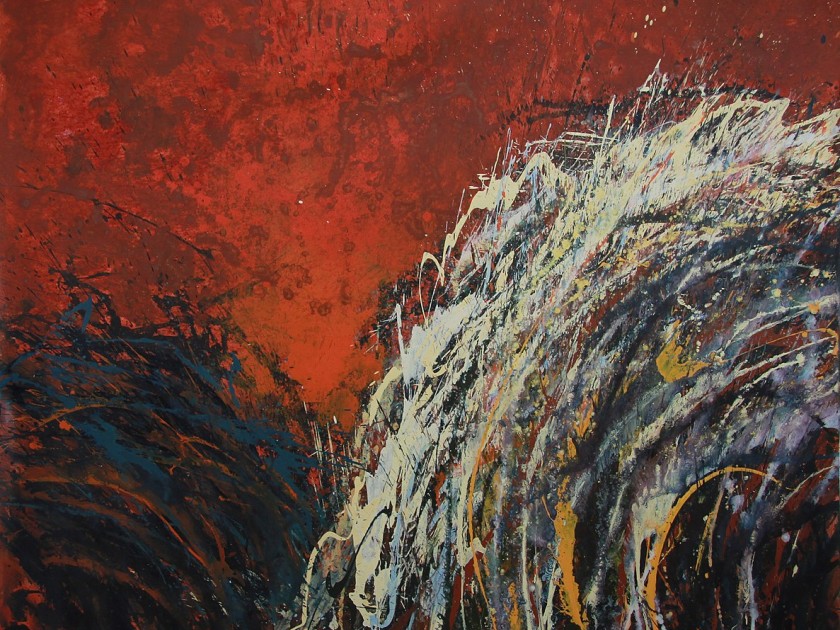
Exodus: Red Sea, painting by Baruj Salinas
The day my children Anna and Lucas turned seven, I started writing Lilith’s story, which would become The Night Travelers. The number seven became an obsession. I remember a sentence that hovered over a blank page for several days about Ally, Lilith’s mother: “She wanted the days to stand still, for Lilith not to grow, for them never to celebrate birthday number seven. If only we could stop time, she thought.” It was around Lilith’s seventh birthday that Ally’s nightmares began. Mine too.
Sometimes I would see myself in front of my children (I have three: Emma 17, Anna and Lucas, 13) detailing their features, observing their profiles, analyzing their skin color, each so different from each other. The hues of their eyes, the texture of their hair, the size of their forehead, the shape of their nose.
I studied the Nuremberg Race Laws as part of my research for my historical novels and I found myself wondering if my children would have survived. Nazi eugenics laws were specifically based on the research of doctors from Pasadena, California. In the first half of the twentieth century, the method these doctors developed gave rise to the involuntary sterilization of some 70,000 people in the US. Sterilization continued to be practiced in certain states, including Virginia and California, until 1979.
It was on that seventh birthday of my children that the story of The Night Travelers was born — a story that goes from 1920s Berlin to 1940s Havana, from 1970s New York and Dusseldorf to present-day Berlin and Havana. A story of four generations of women, separated by time and united by sacrifice.
What choices does a mother or father make in order to save their child?
When I finished writing The Night Travelers, we were living through the crisis of abandoned children on the Mexico-US border. Families separated, children imprisoned in makeshift cages. I remember, while covering this crisis as a journalist, hearing many times how the women who sent their young children alone were questioned and condemned.
What choices does a mother or father make in order to save their child?
I thought of the parents who sent their children (some 10,000) to England during the Kindertransport program to save them from the Nazi death camps; of the more than 14,000 children that Cuban parents sent alone to the US (Operation Pedro Pan), to protect them from the Communist Party.
Sadly, history tends to repeat itself.
It was in Australia, during the launch of The German Girl in 2017, that someone in the audience asked me if my novel was inspired by the refugee crisis. At the time, tens of thousands of Syrian refugees were crossing borders in Europe, trying to find a country that would take them in. No, I clarified, I had finished writing my book two years prior, in 2015. I am also a refugee, I added.
Since then I have realized that all my novels in their own way examine the fear we have of the ‘other’: the one who has a different skin color, believes in a different God, speaks with a different accent, has a different sexual orientation. The day we accept and respect our differences, that day, I am convinced, the world will be a better place.
Armando Lucas Correa is an award-winning journalist, editor, author, and the recipient of several awards from the National Association of Hispanic Publications and the Society of Professional Journalists. He is the author of the international bestseller The German Girl, which is now being published in sixteen languages. For The Night Travelers, Correa received the Creative Writing Award of the Cintas Foundation Fellowships (2022). He lives in New York City with his husband and their three children.